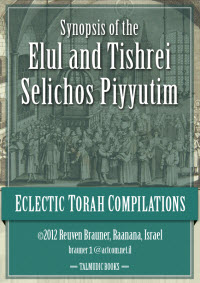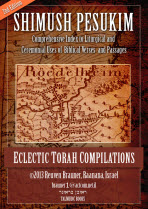Daily Talmud study is both learning and religious devotion - the fulfillment of the mitzvah of Talmud Torah.
Download for Daf Yomi a Free English Talmud Berakhot / Berakoth / Berachos in one PDF file.
Download for Daf Yomi a Free Two-Column Brilliantly Reformatted English Talmud Berakhot / Berakoth / Berachos in two PDF files.
Purchase for Kindle from Amazon for Daf Yomi a 99 cent English Talmud Berakhot / Berakoth / Berachos.
Download for Daf Yomi a Free English Talmud Berakhot / Berakoth / Berachos in one PDF file.
Download for Daf Yomi a Free Two-Column Brilliantly Reformatted English Talmud Berakhot / Berakoth / Berachos in two PDF files.
Purchase for Kindle from Amazon for Daf Yomi a 99 cent English Talmud Berakhot / Berakoth / Berachos.








 Beruryah was a great independent, moral, outspoken Talmudic woman who met with a tragic end, according to a medieval story.
Beruryah was a great independent, moral, outspoken Talmudic woman who met with a tragic end, according to a medieval story.





 Sam Norich has put up obnoxious nag screens with his picture on his site because he wants us to give him $120 to become a member of the Forward. We thought the paper was profitable and did not need to beg for donations. Guess we was wrong.
Sam Norich has put up obnoxious nag screens with his picture on his site because he wants us to give him $120 to become a member of the Forward. We thought the paper was profitable and did not need to beg for donations. Guess we was wrong.
 Yes, the potential Republican Vice Presidential candidate Paul Ryan's hero Ayn Rand was a Jew.
Yes, the potential Republican Vice Presidential candidate Paul Ryan's hero Ayn Rand was a Jew.

 Yahoo News reports that Mitt Romney dropped in on an Orthodox Jewish wedding in Lakewood NJ.
Yahoo News reports that Mitt Romney dropped in on an Orthodox Jewish wedding in Lakewood NJ.  Mitt Romney, who has served as an official of the Mormon church, which pothumously baptizes Jews, knows a thing or two about waging war using religion.
Mitt Romney, who has served as an official of the Mormon church, which pothumously baptizes Jews, knows a thing or two about waging war using religion. 


